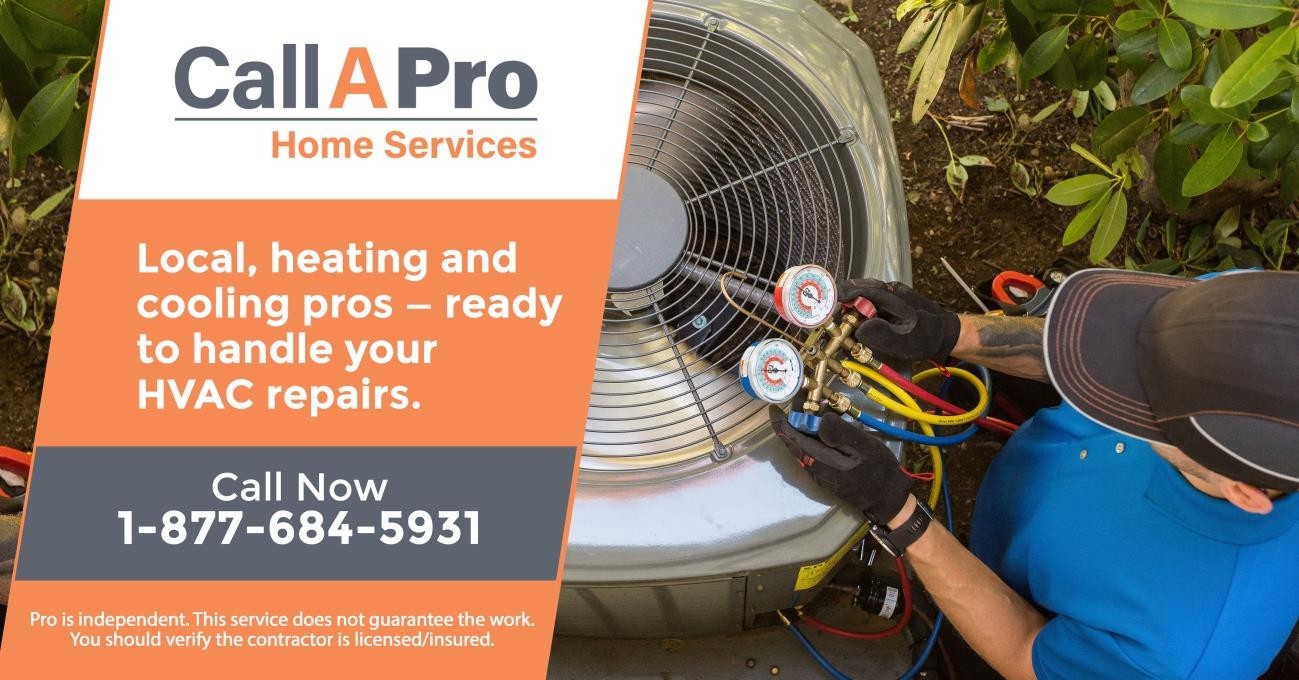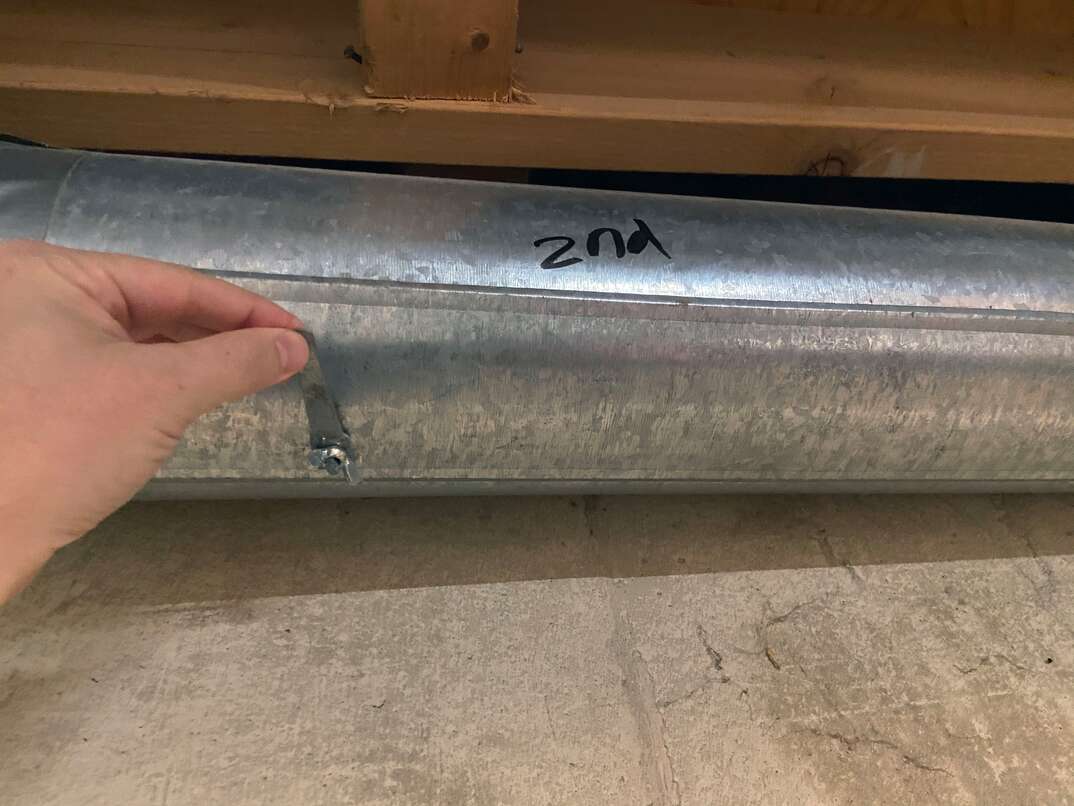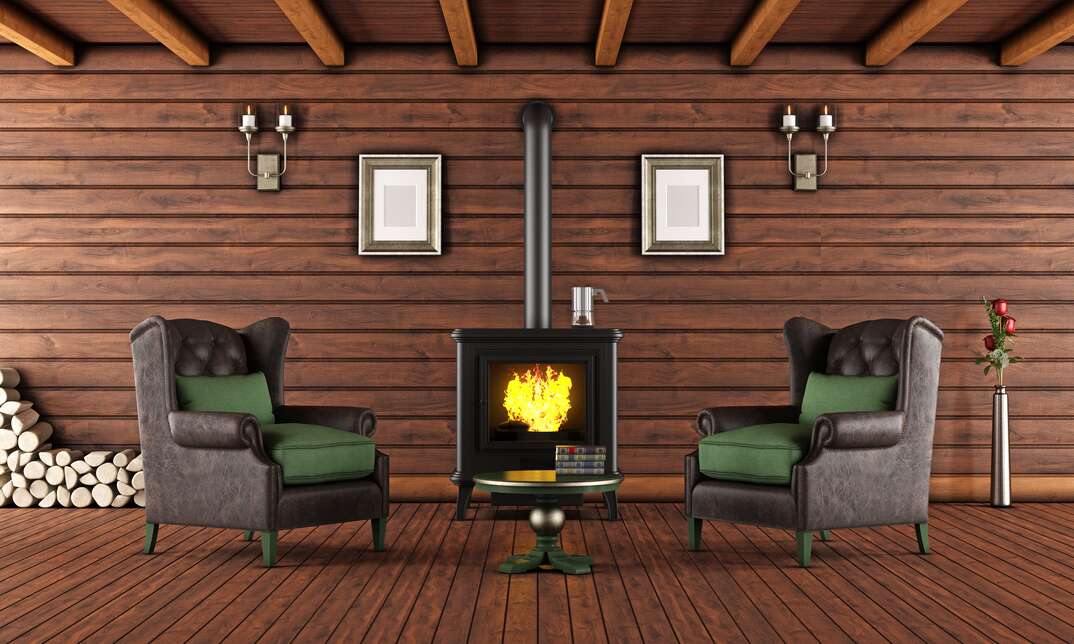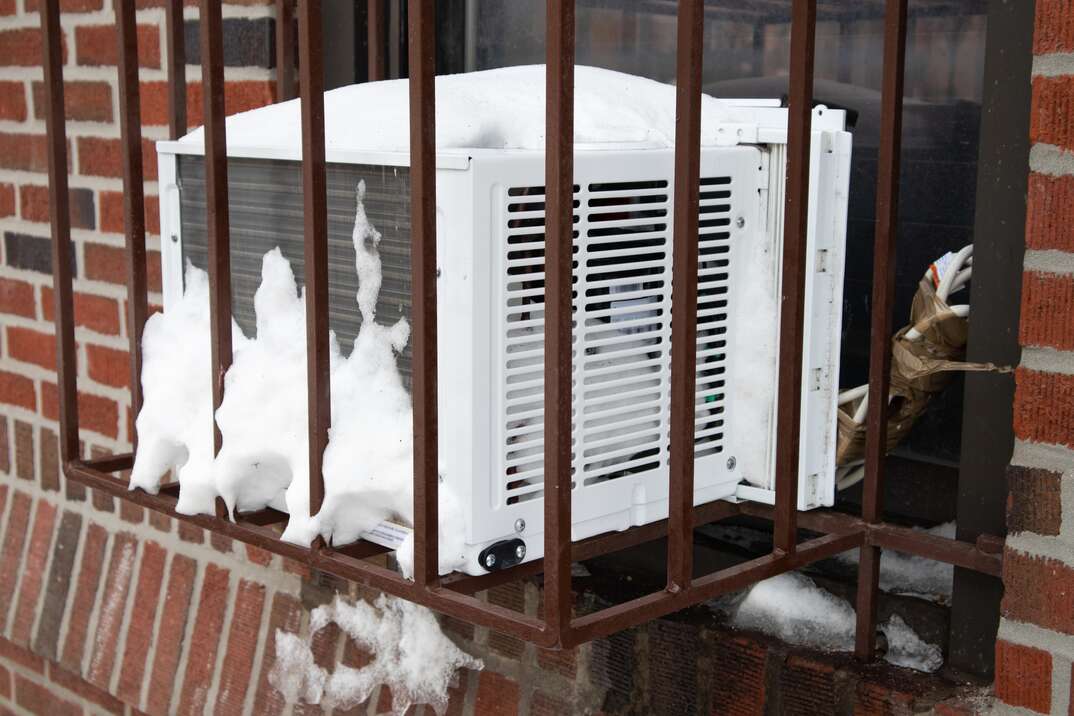Should You Cover Your Home's AC Unit in the Winter?
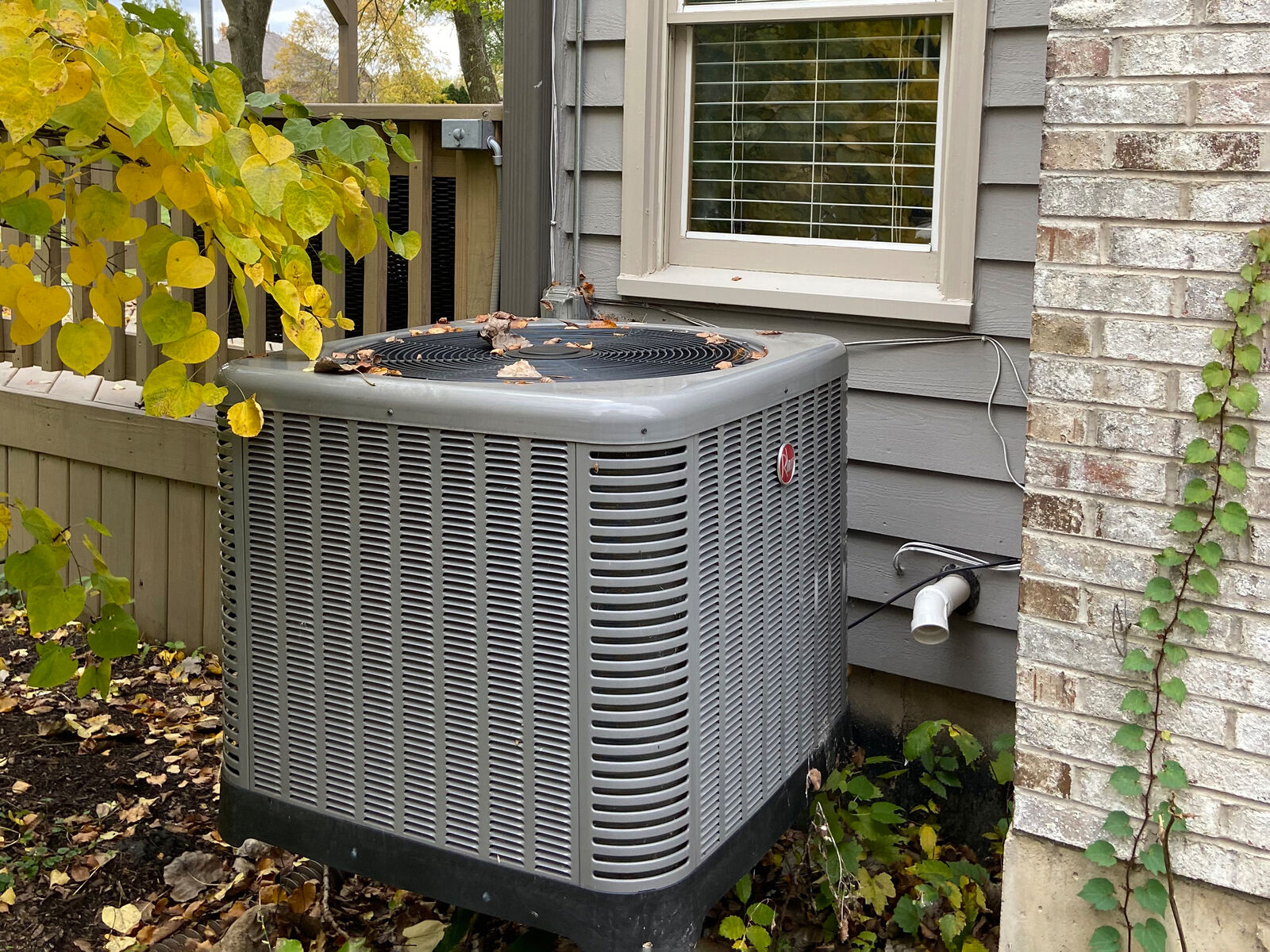
As a homeowner, it's important that you're taking all the steps necessary to protect your home and the appliances that keep your household livable. To that end, you might consider covering your air-conditioning unit during the cooler months.
This May Also Interest You: What Is the Cost of Central Air Installation?
Read on to learn all about how covering your AC unit can be beneficial '97 as well as some reasons why you shouldn't do it. Whatever you decide, we've got you covered.
Does Covering Your AC Unit Help?
Whether you should cover your AC unit during the wintertime has been a debate within the air-conditioning industry for years. In theory, it makes sense: You won't need your air conditioning unit during the winter unless you live in a climate where it gets hot in the winter '97 so why not cover it up for protection from the elements?
Many AC experts believe covering your air conditioner is unnecessary, as the units have been built to withstand extreme weather such as rain, wind, snow and ice. That may be true '97 but there are some circumstances in which covering your AC unit is advisable.
When You Should Cover Your AC Unit
Thanks to modern technology, AC units are built to be efficient and durable '97 but that's not to say they're completely weatherproof. In fact, you perhaps should be more focused on protecting your AC unit during the fall than during the winter.
While your unit was built to stand up to inclement conditions, it wasn't built to protect against leaves, seeds, acorns and other tree debris. If you feel like you start raking the lawn all over again the moment you finish during the fall, you don't need us to tell you how much clutter finds its way into your yard '97 but when these bits and pieces find their way into your air conditioner, they can create a place for moisture to collect, which can cause corrosion. Likewise, the debris can block your unit's built-in moisture-drainage mechanism.
Unfortunately, many homeowners aren't aware of the damage fall can bring to their AC system. It's also difficult for some homeowners to cover their units during the fall, as the weather can still be quite unpredictable in some climates: cool and rainy one day, hot and sunny the next.
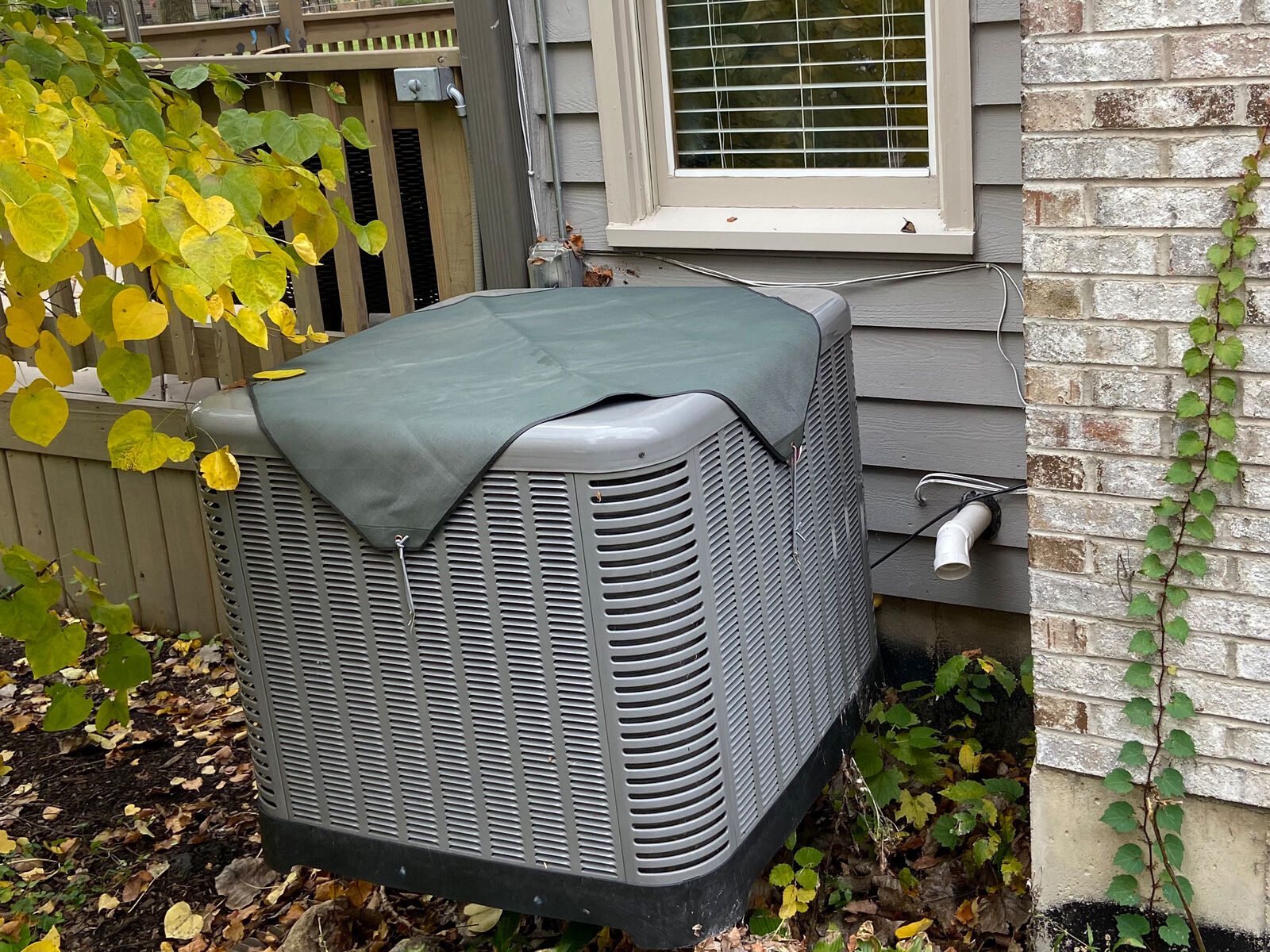
How to Properly Cover Your AC Unit
If you do decide its worth protecting your air conditioning unit during the fall, it's worth doing right. You can purchase a cover yourself or you can make your own and save a little money.
If You Go the DIY Route...
... be aware that the cover should come down to the side of the unit only about 6 inches. You do not want to cover the air conditioner completely, as it can lead to a number of problems such as trapping moisture inside and causing corrosion '97 in which case you could've just left it uncovered and taken your chances.
Where Can You Buy an AC Cover?
If you decide, instead, to purchase a factory-made cover, your options are many. Your favorite home-improvement store will likely carry a wide selection of covers to choose from. You can also purchase covers online from a reputable source. Many AC-unit manufacturers also include covers with their products, so it's possible that you have one specifically designed for your unit somewhere in your home.
Arguments Against Covering Your AC Unit
As mentioned earlier, whether you need to cover your air conditioner during the fall and winter months has been a topic of debate. While it makes sense to protect your unit while you're not using it, there are some reasons why you might not need to '97 or even that you shouldn't. Here are three:
1. A Cover Can't Keep Everything Out
Snow, ice, moisture, dirt and other debris are the primary reason for covering your AC unit. But because newer units are built to withstand weather, and you can't completely keep out moisture and dirt anyway, it could prove to be a waste of time at best. (Still, if you have an older, less-sophisticated unit, it may be beneficial to cover it during the winter.)
2. A Cover Could Do More Harm Than Good
Because moisture is all but guaranteed to seep into your air conditioner anyway, a cover can actually cause damage. Moisture inside the unit could become trapped, leading to mold.
3. Oh, Rats!
You might assume a cover would prevent rats and other rodents and critters from taking up residence in your unit and causing trouble, but it may actually have the opposite effect. During the winter months, animals want to stay out of the cold '97 and your cover will provide them with shelter. Remember, rodents are adept at squeezing into very small spaces.
These are all things to consider when deciding for yourself whether to cover your home's AC unit. But whatever you do, there's no guarantee that your AC unit won't require pricey maintenance at some point down the line. Being prepared with a home repair plan could save you stress and money. When you have a plan and a covered issue arises, simply call the 24/7 repair hotline and a local contractor will be sent to your home. See what plans from HomeServe are available in your neighborhood.
